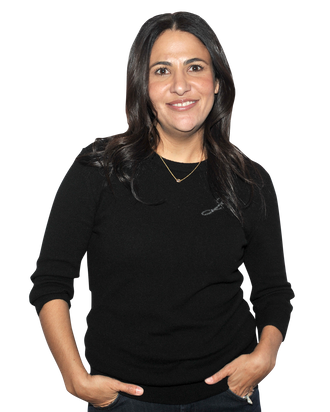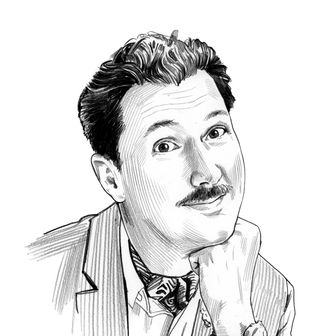
The end of GirlsÔÇÖ fourth season was like a fairy-tale ending. Hannah (Lena Dunham) got over Adam (Adam Driver) and fell in love with her fellow teacher Fran (Jake Lacy). Marnie (Allison Williams) finally got the marriage proposal she always wanted. Shoshanna (Zosia Mamet) moved to Japan for a fulfilling job. And Jessa (Jemima Kirke), poor, messy Jessa, finally seemed to get her act together. There was a feeling in the air that they couldnÔÇÖt hold on to this happiness forever.
But as season five sets off at MarnieÔÇÖs wedding, theyÔÇÖre all still living ever after, and mostly happily. Showrunner Jenni Konner, who executive-produces the show alongside Dunham and Judd Apatow, says this is her favorite season so far, and that this is the year the girls are finally going to get it together. With only the fifth and sixth seasons left before the show comes to a close, Konner opens up about the final chapters and how she feels about all of those internet think pieces about her show.
Tell me about season five ÔÇö whatÔÇÖs new and exciting about it?
First of all, itÔÇÖs my favorite season of Girls, and IÔÇÖve never said that before. It really is. I canÔÇÖt articulate exactly why, but I just love it. One of the things IÔÇÖm the most proud of is that Elijah finally has a real romantic arc, with Corey Stoll. HeÔÇÖs wonderful, and I think Andrew Rannells is one of the most talented people in the world. We knew that already because he [was up for] a Tony for singing and dancing, and I know that everyone knows heÔÇÖs the funniest, but I donÔÇÖt know if they know how vulnerable he can be. The story, IÔÇÖve seen it 8,000 times in editing, and it makes me cry every single time. ThatÔÇÖs one of my favorite things.
Watching the first four episodes, the show seems much more focused. Everyone has their story, and theyÔÇÖre going toward that over the episodes. Was that intentional?
The thing that was intentional is that it was like, Okay, this is the season when they actively try to get their shit together. This season theyÔÇÖre all like, ÔÇ£Maybe weÔÇÖre a bit old to be fucking around so much.ÔÇØ So that is translating into the way weÔÇÖre telling the stories.
Did you ever have that I-need-to-get-my-shit-together moment?
I did have that moment. I had a job at the Tribeca Film Festival for Jane Rosenthal, but I was really Hannah. I canÔÇÖt believe she kept me around. When I think about that job, all I did was take writers out to lunch and say, ÔÇ£What is your job like? What do you do all day?ÔÇØ I was so useless. When I quit that job and decided I was going to try writing, and I was waitressing while I was writing, that was the moment when I was like, ÔÇ£I have to do the thing that I want and give it a shot.ÔÇØ I really am grateful to Jane for not firing me.
I am shocked Hannah manages not to get fired when sheÔÇÖs around Brooklyn children, which are AmericaÔÇÖs most precious resource.
And the fact that she doesnÔÇÖt get arrested is also amazing.
You recently announced that season six of Girls will be its last. Are the wheels already in motion with how the ending is going to work?
They certainly are. We know the end. We just laid out the general ideas of the season. We do this every year: Me and Judd and Lena get together before meeting with the writers. We sat and went through everything, and figured out how itÔÇÖs going to end. ItÔÇÖs a very bittersweet process. We want to get out while the getting is good. People still care about us and talk about us, and being a part of the conversation is amazing, and so we want to really find it.
You mentioned that itÔÇÖs part of the conversation. I always joking refer to Girls as a Think Piece Factory.
I know. We are so lucky. The [fact that] in the fifth season people are still interested. I feel really fortunate.
Do all of those internet pieces have any impact on the show?
You know, the thoughtful ones do. There are critics we really love, I really like Willa Paskin and Emily Nussbaum and Alan Sepinwall, and sometimes theyÔÇÖll have a criticism that will be said in a very thoughtful way, and it will affect us. We never make a 180 on something because of it. But in the first season, the conversation about race totally changed the way we did the rest of the show. We heard the criticism and we addressed it, and now [we do] even more in our future work. WeÔÇÖd never make that mistake again.
I was noticing that you see a lot more minority characters in all sorts of roles.
And in future roles we do, youÔÇÖre not going to see four white people on a poster again. That wonÔÇÖt be our reality.
Now weÔÇÖre in the middle of #OscarsSoWhite, so you beat everyone by years.
The crazy thing is how the movies are so far behind television in terms of diversity. Even diversity of females. There are so many more female showrunners that are women. And a female director canÔÇÖt get arrested in movies. This was like seeing it in stark relief. Usually change happens from some awful mistake. WeÔÇÖre now at this moment and I hope the change is beginning.
It took us a few years to get to this place with the Oscars ÔÇö why do you think it was happening with Girls years ago?
ItÔÇÖs funny that one thing my boyfriend, Richard Shepard, who is a director on the show, said is that you never would have had these problems if you called it Girl. ItÔÇÖs like you were taking on too much. Whenever thereÔÇÖs a show that affects people and they talk about it, they will talk about every part of it. And that was our weakest link. Everything comes to the forefront when youÔÇÖre being talked about. You donÔÇÖt skim over anything. ItÔÇÖs every detail.
The things I think people are going to talk about, they donÔÇÖt even blink. And the things they do ÔÇö [for example] in season one, the conversation about Shiri ApplebyÔÇÖs story and whether or not it was rape, I didnÔÇÖt think in a million years that was a rape story. I thought it was gray, but I didnÔÇÖt see it as rape, so the fact that people had such a strong reaction completely surprised me. Anything I say will be a shock to people, I am wrong [about]. You know on Seinfeld when George decided to do everything the opposite? ThatÔÇÖs me.
Is there anything among those discussions that really upset you?
Not really. Again, itÔÇÖs such an honor to be talked about. To me, the worst thing in the world is to put on a show and no one talks about it. That is my fear. Those are the nightmares that wake me up in the middle of the night. That you put on the show and people are like, ÔÇ£I never heard of that.ÔÇØ


